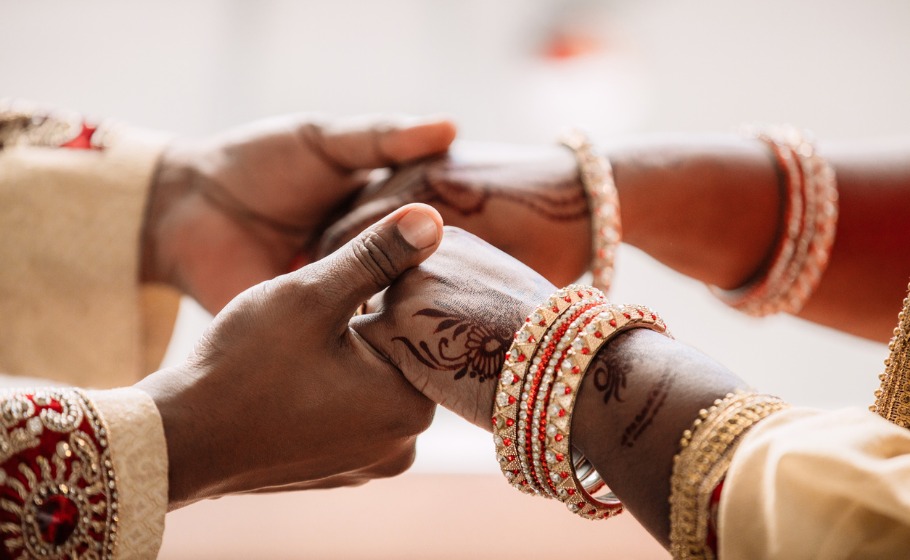
Love Jihad: A theory which wilts under legal scrutiny
The concept of ‘love jihad’, which pertains to alleged forceful religious conversion of Hindu brides by Muslim grooms according to right-wing leaders, was back in the headlines few days ago.

The concept of ‘love jihad’, which pertains to alleged forceful religious conversion of Hindu brides by Muslim grooms according to right-wing leaders, was back in the headlines few days ago. The trigger came from BJP-ruled Madhya Pradesh, where its home minister, Narottam Mishra had said the state government would table a bill against ‘love jihad’, an alleged crime concept which, so far, has no legal basis.
Madhya Pradesh’s proposals echoed in several BJP-ruled states, indeed in Uttar Pradesh, where Chief Minister Yogi Adityanath had gone to the extent of threatening those who wage “love jihad” of death. In Haryana, home minister Anil Vij too had said a committee will be formed to draft a strict law against the alleged crime concept.
However, interestingly, a recent court judgment indicates that any such law, even if passed by a state assembly or brought as an ordinance, would fall flat in the court for the very fact that it will be an infringement of freedom of choice, or to state clearly, unconstitutional.
Related news | ‘Love jihad’ bogey: Why BJP sees hate in interfaith marriages
The Allahabad High Court has made an important observation as to how a court must see people presented before it. Cancelling a case against Salamat Ansari, a Muslim man, filed by the parents of his Hindu wife, Priyanka Kharwar, who had converted to Islam last year before marrying him, the court observed that it does not see the two individuals as Hindu and Muslim, but two grown-ups living together happily out of their own choice and will.
It held, interference in a personal relationship would constitute a serious encroachment into the right to freedom of choice of the two individuals. In view of this legal stand, it is unlikely that the proposed laws would stand a chance in the courts of law, leading to an embarrassing episode for the governments that promulgate such legislations.
“The Courts and the Constitutional Courts in particular are enjoined to uphold the life and liberty of an individual guaranteed under Article 21 of the Constitution of India,” the two-judge bench further said.
Not just that, they also denounced a previous judgment that religious conversion only for the purpose of marriage is unacceptable, saying that it was “bad in law”. Referring to the 2014 judgment in the Noor Jahan Begum case, the high court said, “To disregard the choice of a person who is of the age of majority would not only be antithetic to the freedom of choice of a grown-up individual but would also be a threat to the concept of unity in diversity.”
The court asserted that the Indian law allows two adults, even if they are of the same sex, to live together peacefully out of their own will, and that no one, neither their families nor the state, can object to it.
The denounced decision of 2014 was cited for a similar case this year, and interestingly, it was cited by UP Chief Minister Adityanth to justify his government’s actions to stop “love jihad”.
Moreover, in the same state, a special investigation team set up to probe alleged cases of “love jihad” has recently submitted its report, ruling out any conspiracy angle or international funding for such conversions in at least 14 such cases. It also dismissed charges that the accused youth had any backing of any organisation.
Related news | ‘Love jihad’ doesn’t exist, says UP SIT after two months of investigation
In 11 of the 14 cases, it was found the police had taken action against the accused for charges pertaining to kidnapping and compelling them for marriage and in eight of them, the girls were found minors. In the rest three cases, closure reports have been filed since the Hindu adult women had given statements stating their will in the relationship, police said.
Interestingly, this February, even the Union home ministry had informed the Parliament that “love jihad” remains undefined under extant laws.
The oxymoronic stamp of “love jihad”, however, has imposed a societal scanner on personal relationships of interfaith couples, increasing unease and discomfort for the ones looking for “happily ever after”. Not just that, it has crept into every quarter, churning out controversies and news for the gossip-hungry populace.
Recently, a “love jihad” debate erupted after MP minister Mishra said state police had been asked to examine a scene of two protagonists, a Hindu girl and Muslim boy, kissing with a temple in the backdrop. Once more, there was heated debate on “love jihad”, with ‘#BoycottNetflix” even trending on Twitter. The following day, an FIR was filed against two Netflix executives for allegedly hurting religious sentiments through the series.
Last month, the term reared its head when jewellery brand Tanishq was forced to pull down an ad showing a Muslim mother-in-law organising a baby shower for her Hindu daughter-in-law.


